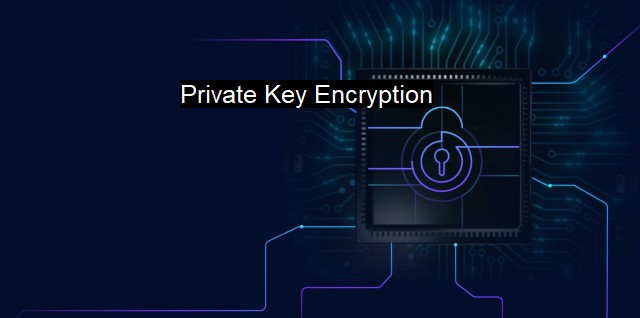What is Private Key Encryption?
Exploring Private Key Encryption: The Core of Cybersecurity and Antivirus Solutions in the Digital Landscape
Private key encryption, commonly referred to as symmetric encryption, is a method of encrypting data where the same key is used for both encryption and decryption processes. It is one of the fundamental techniques employed in web technologies to protect sensitive information from unauthorized individuals. In the context of cybersecurity and antivirus programs, private key encryption serves as a critical preventive safeguard against potential online threats and security breaches.This form of encryption has been used for thousands of years, providing security by making only those who have access to the private encryption key capable of deciphering the encrypted message. A common example of this type of encryption in practice over the years is wartime communication, where messages would be encoded to avoid enemies understanding the content if intercepted. The same principles apply to modern encryption, designed to safeguard digital transmissions and files from hackers and cyber-attackers.
Private key encryption functions on the basic premise of rearranging data bits. Here's how it works: a program or algorithm churns an original plaintext message (or any form of data), creating what looks like a random nebula of text, which is the ciphertext. The transformation, triggered by the private key, ensures that only those with the identical key can restore the message by decrypting the ciphertext back into the understandable plaintext. The private key must remain confidential for the safety of communication.
This encryption method provides several notable features that have contributed to its enduring popularity and widespread usage. First is its relatively simple implementation. Both the sender and recipient require only one unique key. This simplifies management and storage of keys greatly, particularly in comparison to some other encryption types, such as public key encryption. Plus, the encryption and decryption algorithms are incredibly fast, enabling swift and encrypted communication even across large distances or when handling substantial data loads.
Private key encryption isn't without its problems; key management and secure distribution can be challenging. Parties must securely exchange the decryption key without the risk of interception by malicious actors who could then use the key to decrypt the ciphered message or data. given the key must be kept private and secure, the difficulty of this task increases as the number of involved parties grows, raising potential scalability issues.
Private key encryption is a powerful tool often deployed within antivirus programs along with other defensive measures in a layered defense tactic. As cyber attackers aim to infiltrate an individual's or business's defenses, they are likely to come across the encrypted data. Even if they can access the integrated encrypted files or systems, without the decryption key, the information appears as gibberish. Notably, many viruses and malware programs also use private key encryption to hide their workings from antivirus software, making decryption a critical tool for security applications in combating such threats.
Private key encryption is an efficient and effective cryptographic method that plays a crucial role in cybersecurity and antivirus applications. It harbors both protective and preventive capabilities, safeguarding sensitive data from prying nefarious actors within the digital space and incorporating techniques for tackling encrypted threats. it also raises the need for secure key handling procedures and stringent security policies to ensure the utmost protection and effectiveness. With such a balance in place, private key encryption can meet the continuously evolving challenge of sustaining secure digital communication, data transmission, and storage amid the persistently advancing realm of cybersecurity threats.

Private Key Encryption FAQs
What is private key encryption?
Private key encryption, also known as symmetric encryption, is a type of encryption where a single private key is used to both encrypt and decrypt data. This key must be kept secret and only shared between the parties that need to access the encrypted data.How does private key encryption work?
Private key encryption works by taking plaintext data and using a private key to scramble it into ciphertext. The recipient of the encrypted data can then use the same private key to decrypt the ciphertext and reveal the original plaintext.What are the advantages of private key encryption for cybersecurity?
Private key encryption is often faster and requires less computational power than other encryption methods, making it a practical choice for protecting data in real-time. It is also a secure method of encryption, as long as the private key is kept secret and not compromised.Can antivirus software protect my private key?
Antivirus software can help protect your private key by preventing malware or other malicious software from accessing and stealing it. However, it is important to keep your antivirus software up to date and run regular scans to ensure your system remains protected. Additionally, it is important to keep your private key secure by storing it in a secure location and not sharing it with unauthorized parties.| | A | | | B | | | C | | | D | | | E | | | F | | | G | | | H | | | I | | | J | | | K | | | L | | | M | |
| | N | | | O | | | P | | | Q | | | R | | | S | | | T | | | U | | | V | | | W | | | X | | | Y | | | Z | |
| | 1 | | | 2 | | | 3 | | | 4 | | | 7 | | | 8 | | |||||||